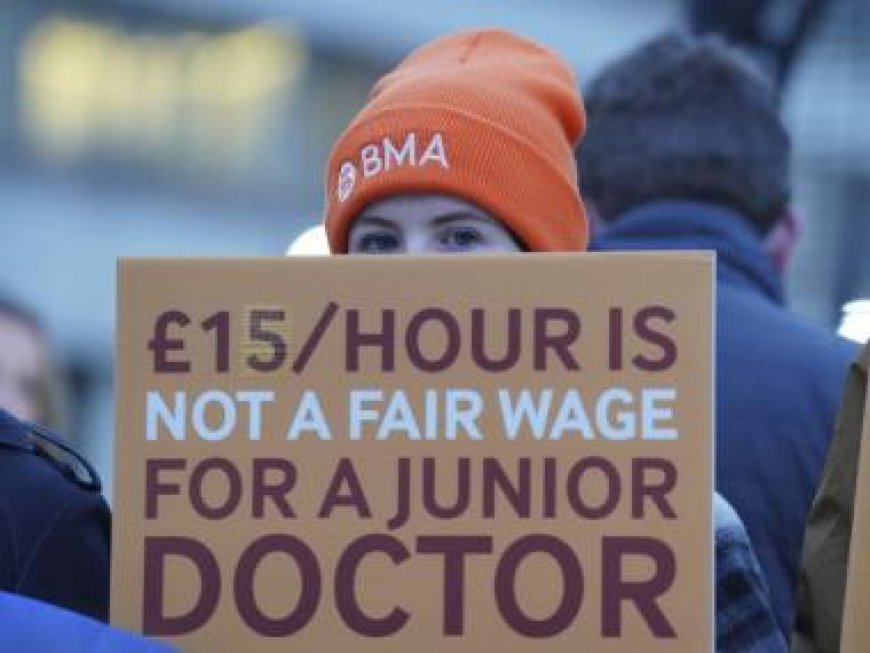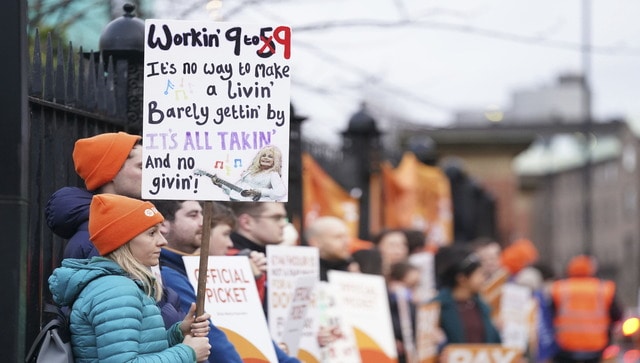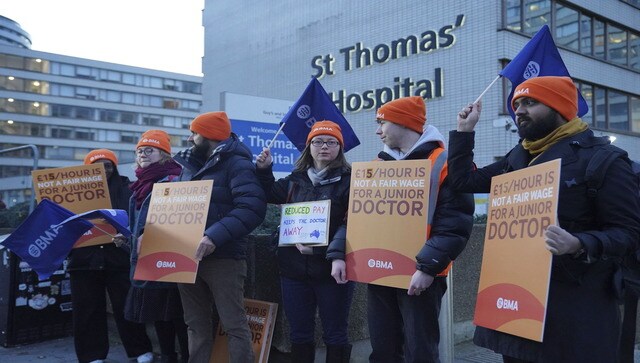Why junior doctors in the UK have gone on the ‘longest-ever’ NHS strike
Why junior doctors in the UK have gone on the ‘longest-ever’ NHS strike

Britain’s state-run health service, the National Health Service (NHS), is witnessing its longest strike in history. Junior doctors have walked off the job in a six-day strike that started at 7:00 GMT (12:30 pm IST) on Wednesday (3 January).
The industrial action is expected to affect tens of thousands of patients who will face cancelled treatments. The latest strike comes amid a long-running dispute between junior doctors and the United Kingdom government over pay that saw the workers walkout for 28 days last year.
Let’s take a closer look at what is going on.
NHS sees the longest strike
Junior doctors’ strike comes at one of the busiest times for patient care in the UK. NHS bosses have warned that this walkout – the ninth by junior doctors – would be quite tough.
According to NHS England medical director Professor Sir Stephen Powis, there was an uptick in respiratory illnesses, such as COVID-19 and flu, and staff sickness, which made this strike “very challenging”, reported BBC.

Julian Hartley, chief executive of heath care managers’ organisation NHS Providers, said the walkout has come “immediately after the Christmas and New Year period because of the pressures the demands, and of course we’ve got flu, we’ve got COVID.
“So there’s going to be an impact on patients that will be significant,” Associated Press (AP) quoted him as saying.
Impact on patients’ care
The latest strikes could increase pressure on the NHS where more than 7.7 million (77 lakh) patients are on waiting lists for procedures and appointments, according to Reuters.
Routine hospital services, such as check-ups and planned operations, will be affected in England in the coming days because senior doctors have been drafted to cover for emergency services, critical care and maternity services.
“There’s likely to be many, many thousands of appointments cancelled or rescheduled again, and that’s on top of the 1.2m we’ve already seen during well over a year now with periods of industrial action,” Prof Powis said, according to The Guardian.
He said that 13 months of strikes by doctors, nurses and other staff was “having an enormous impact on the NHS”.
There are concerns about appointments getting postponed which could trigger worry among patients.
As per The Guardian report, the Royal National Institute of Blind People flagged that many patients “will be coping this week with the distressing news that their appointment has been cancelled or rescheduled or postponed”.
“Any uncertainty caused by industrial action is likely to cause real worry and anxiety for people living with cancer who have upcoming appointments or are waiting for results,” Sarah Ruane, Macmillan Cancer Support’s director of advocacy, was quoted as saying by the British newspaper.
Why are junior doctors in the UK protesting?
The UK has seen a year of rolling strikes across the health sector as staff demanded pay hikes to combat the soaring cost of living. Unions argue that wages have plunged in real terms over the last 10 years. They say the stinging inflation in late 2022 and early 2023, triggered by surging food and energy prices, made it difficult for many workers to meet expenses, reported AP.
Dr Georgia Blackwell, a 28-year-old protestor outside St. Thomas’ Hospital in central London, said stress and low pay were leading to many doctors seek jobs abroad. “A lot of doctors are moving to Australia — not just because of the pay, but also the work-life balance is better,” she told AP.
The British Medical Association (BMA), which represents doctors in the UK, is asking for a 35 per cent pay hike for 46,000 junior doctors.
The association has said it is ready to end the six-day strike if the government makes a “credible” offer. BMA junior doctor leader Dr Vivek Trivedi told BBC in an interview, “Anyone from the government could still come to us today and if we thought that offer was credible, and if we can resume talks and build on that, then we can stop our strike action for the rest of the week.”

Junior doctors received an increase in pay averaging nearly 9 per cent for 2023-24. During talks at the end of last year, a further raise of 3 per cent was discussed, reported BBC. However, negotiations failed and no deal could be finalised.
ALSO READ: UK’s junior doctors are on strike: Why pay isn’t the only reason they are angry
What has the UK government said?
UK health secretary Victoria Atkins has said she is ready to talk only after junior doctors call off their strike.
“January is typically the busiest time of the year for the NHS and these strikes will have a serious impact on patients across the country. The NHS has again put in place robust contingency plans to protect patient safety and it is vital anyone who needs medical help continues to come forward,” The Guardian quoted her as saying.
She said she wanted a “fair and reasonable solution to end the strikes once and for all”.
With inputs from agencies
What's Your Reaction?

























































